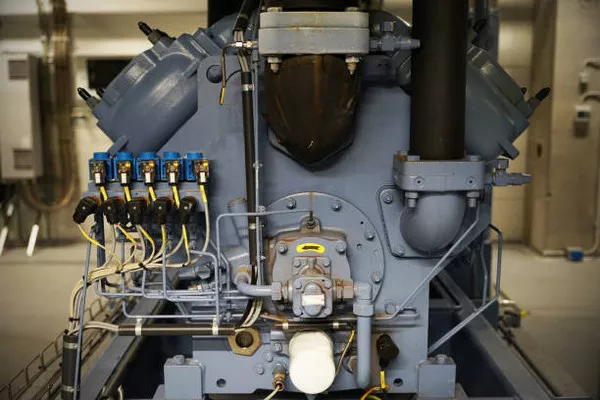For avid RV enthusiasts, traveling and living on the road can be a dream come true. However, to ensure a comfortable and enjoyable experience, it’s crucial to have a reliable power source to run your RV’s essential appliances, especially the air conditioner. A quality generator is the key to maintaining a comfortable living environment during your adventures. In this article, we’ll explore the factors to consider when choosing the best generator to power your RV air conditioner, and we’ll highlight some top options available on the market today.
Understanding RV Air Conditioners
Before delving into the world of generators, it’s essential to understand the power requirements of your RV air conditioner. RV air conditioners come in various sizes and capacities, but the most common ones are 13,500 BTU and 15,000 BTU units. To power these air conditioners, you will need a generator that can deliver a continuous power output measured in watts.
Typically, a 13,500 BTU air conditioner requires around 2,800 to 3,000 watts to start and around 1,500 to 1,800 watts to run continuously. For a 15,000 BTU air conditioner, you may need approximately 3,800 to 4,000 watts to start and about 2,000 watts for continuous operation. Keep these figures in mind when choosing a generator for your RV.
The Importance of the Right Generator
Running an RV air conditioner requires a generator that can provide consistent power to meet its demands. An air conditioner is one of the most power-hungry appliances in an RV, and choosing the wrong generator can lead to various problems, including overheating, reduced lifespan of the AC unit, and frequent power outages. Moreover, inadequate power supply can make your journey uncomfortable and potentially dangerous in extreme weather conditions.
Factors to Consider
When selecting a generator for your RV air conditioner, several factors must be taken into account to ensure you make the right choice. These factors include:
Power Output: The first and most crucial consideration is the generator’s power output, measured in watts. RV air conditioners typically require between 1,000 and 3,500 watts to operate efficiently. Ensure your chosen generator can handle this load while also leaving some room for other appliances you might want to use simultaneously.
Fuel Type: Generators can run on various fuels, including gasoline, propane, and diesel. The choice of fuel depends on your preferences, availability, and budget. Gasoline generators are the most common and readily available, while propane generators are efficient and cleaner-burning. Diesel generators tend to be more fuel-efficient but are often bulkier and more expensive.
Portability: Portability is crucial for RV owners, as you’ll need to transport the generator to different locations. Consider the size, weight, and the presence of handles or wheels for easy mobility.
Noise Level: Generators can be noisy, and this can be a significant concern when you’re parked in a campground or RV park. Look for a generator with a low noise level, often measured in decibels (dB), to ensure a peaceful environment for both you and your neighbors.
Run Time: The generator’s run time on a single tank of fuel is essential. You’ll want a generator that can provide power for extended periods without needing frequent refueling.
Inverter vs. Conventional Generator: Inverter generators are known for their cleaner and more stable power output, making them ideal for sensitive electronics and air conditioners. Conventional generators are generally less expensive but may produce less stable power.
Top Generators for RV Air Conditioners
Now that you’re aware of the key considerations, let’s take a look at some of the top generators available for powering your RV’s air conditioner.
Honda EU2200i – This inverter generator is renowned for its quiet operation and reliability. It produces 2,200 watts of clean power and has a run time of up to 9.6 hours on a single tank of gas. Its compact size and light weight make it a favorite among RV owners.
Champion 3400-Watt Dual Fuel – This dual-fuel generator can run on both gasoline and propane, offering versatility and extended run times. It provides 3,400 starting watts and 3,100 running watts, making it suitable for RV air conditioners and other appliances. While not the quietest, it’s a dependable choice.
Westinghouse iGen4500 – This inverter generator delivers 4,500 peak watts and 3,700 running watts. It’s fuel-efficient, has a long run time, and is quieter than many conventional generators. With a remote start feature and electric start, it offers convenience for RV owners.
Yamaha EF2000iSv2 – Known for its reliability, the Yamaha EF2000iSv2 is an inverter generator that produces 1,600 running watts and 2,000 peak watts. It’s compact and quiet, making it a suitable choice for RV enthusiasts looking for a dependable power source.
Briggs & Stratton P2200 – This inverter generator is highly portable and produces 1,700 running watts. It’s quieter than many conventional generators and offers parallel connectivity, allowing you to link two units for more power if needed.
Conclusion
Selecting the right generator for your RV air conditioner is a decision that directly impacts your comfort and convenience while on the road. It’s essential to consider factors like power output, fuel type, portability, noise level, run time, and the choice between inverter and conventional generators. By carefully evaluating your needs and preferences, you can choose the best generator for your RV, ensuring that you have a reliable source of power to keep your air conditioner running smoothly during your adventures. With the right generator, you can enjoy a comfortable and stress-free journey in your RV, no matter where the road takes you.

